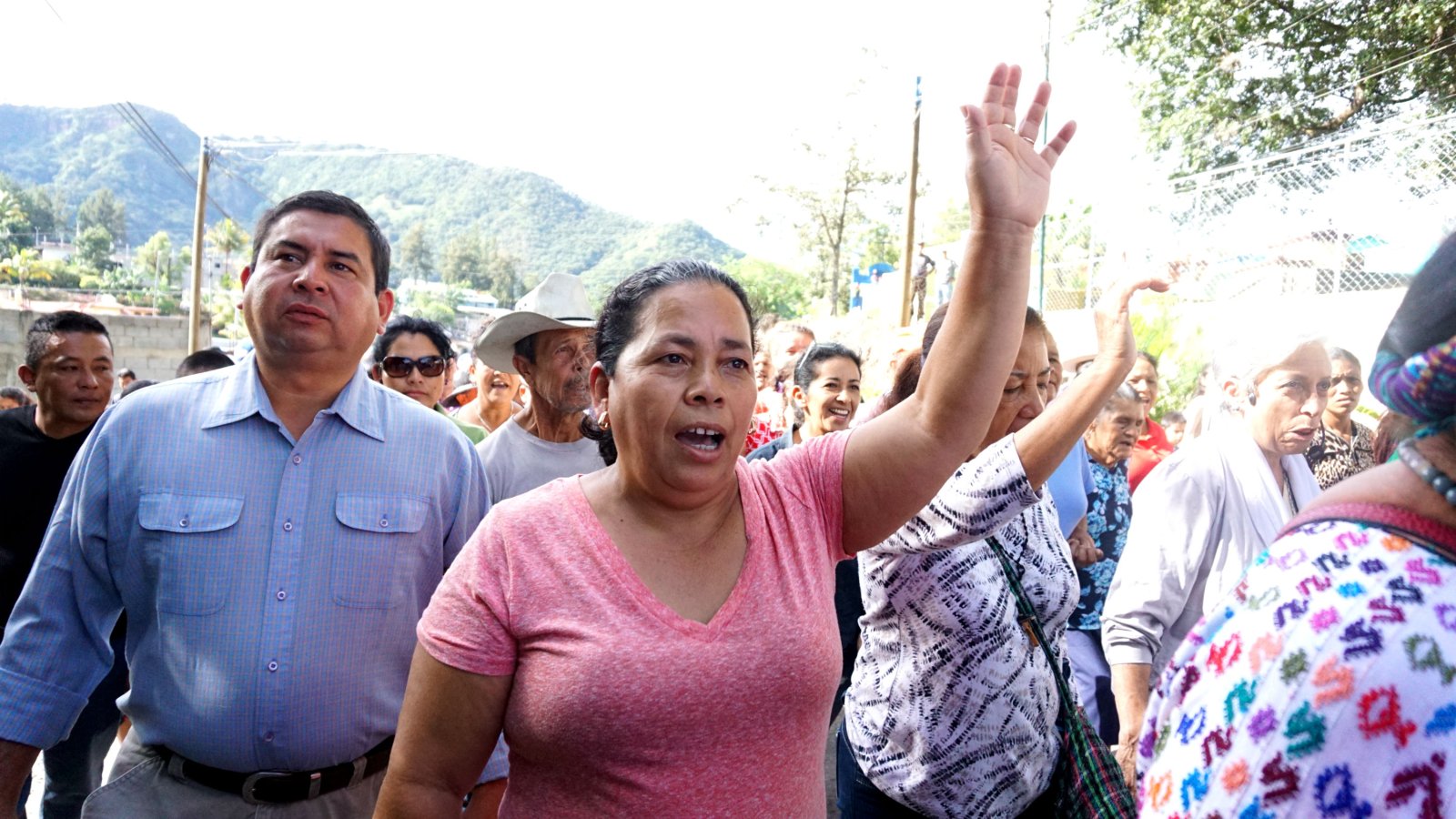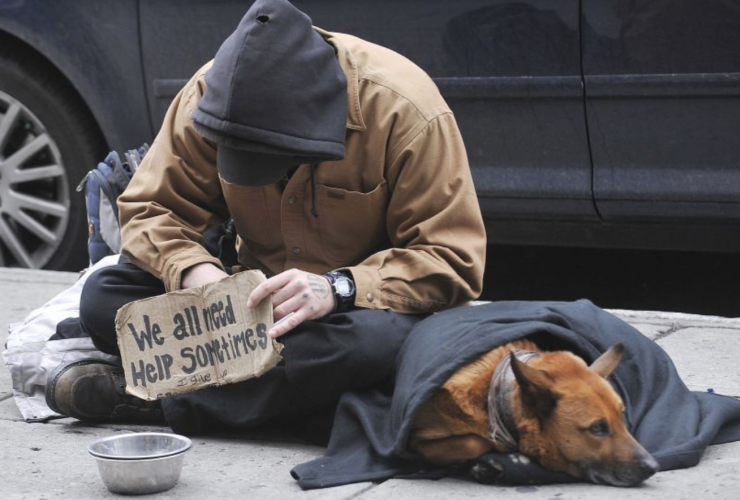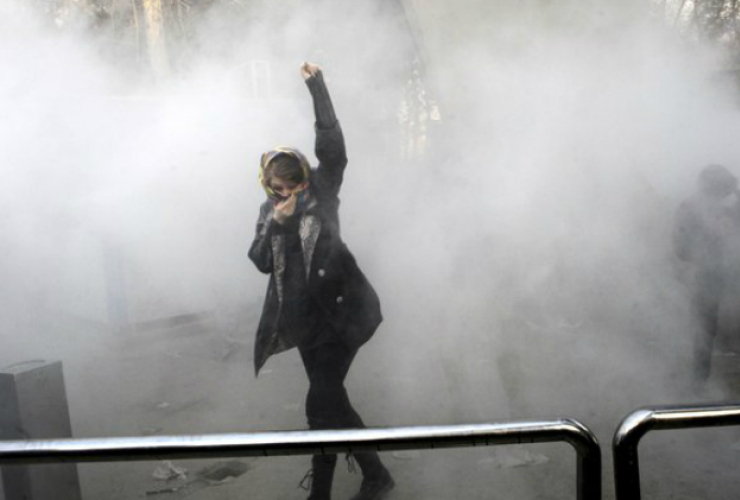This year, the foundational document known as the Universal Declaration of Human Rights turns 70.
The document famously decrees that “all human beings are born free and equal in dignity and rights,” and that “everyone has the right to life, liberty and security of person.”
The declaration was ratified back in 1948 in the aftermath of the Second World War and the revelation of Nazi atrocities. It has since spawned a number of international treaties, covenants and customary laws, of which all United Nations member states have ratified at least one.
That’s not to say that there hasn’t been controversy. To be sure, the assertion that human rights are in fact universal has been hotly contested. Some have contended that the entire notion is born out of the West, and its philosophical emphasis on the individual.
That being said — with the obvious acknowledgement that some relativity exists between different cultures and belief systems — it is reasonable to conclude that freedom from suffering is a transcendent aspiration among people everywhere.
In 2018, human rights remain imperiled in numerous settings around the world. Researchers calculate that there are more than 40 conflicts raging across the globe at present. Millions have been killed, forcibly displaced, or enslaved as a result.
Innocent people — often women and children — remain all-too-frequent casualties in these wars. Killing, torture, rape, slavery, forced enlistment, and attendant famine have all become commonplace, at times despicably used as deliberate tactics of war. A cursory review of the Amnesty International’s literature confirms this.
Canada is not immune
While conflict is a clear threat to human rights, there are other mechanisms which cause equally great suffering: grinding poverty and famine; persecution on the basis of gender, sexual orientation, ethnicity or belief.
Countries like Canada are fortunate to exist in prosperity and far from these conflict zones. Nevertheless, such a buffer does not preclude human rights abuses — Human Rights Watch’s report on Canada points to a number of offences ranging from violence against Indigenous women and girls, and rights violations against Indigenous peoples in general, to the abuses found in Canada’s mines and sweatshops overseas.
Clearly, however, as a society, we are largely spared from the horrors visited upon many people the world over.
Unfortunately, while this privilege is often met with a rather pathetic self-congratulation, it should be instead seen as an obligation. As social philosopher Noam Chomsky once stated with respect to Western nations, “…by comparative and historical standards we are all fortunate to enjoy great freedom. Freedom plainly offers opportunity. Opportunity confers responsibility. Responsibility to use the freedom one enjoys wisely, honestly, and humanely.”
This responsibility means that we should be actively supporting those fleeing from persecution, violence and tyranny. We should strive to be a kind and just society.

Canada could and should take in more people
The argument that we cannot absorb more people is fallacious for anyone who has driven across the northern reaches of the country. Once one slips a couple hundred kilometres north of the American border, the country is wide open.
In his book, Maximum Canada, Globe and Mail journalist Doug Saunders argues compellingly that our population could not only be substantially larger — he suggests the figure of 100 million — but that we are actually hampered by our (small) current population level.
There is little reason not to push on this issue. Immigrants to this country have done well. In fact, many sectors would be in trouble without first generation Canadians.
All this to say that when viability aligns with the moral imperative, it only makes sense for a number of reasons to move forward. The argument might be trickier if accepting greater numbers of migrants jeopardized the well-being of current Canadian citizens.
But it doesn’t.
And the underlying point here is that the adherence to human rights principles dictates that if people are fleeing hardship and persecution — anywhere — it is incumbent on those of us who can help to extend a hand.
Many, many countries with far fewer resources and far less wealth have accepted more of those in need than Canada. We can do better.
We can also stop trading and supporting nations with egregious human rights violations. This not only sends a message to transgressive countries, but it also sets an example on the global stage.
Our politicians need to know that this is an election issue, a matter that Canadians care about.
As we recognize the declaration this year, it is worth remembering the spirit — and the motivation — which produced this document some 70 short years ago.
Prime Minister Justin Trudeau makes a powerful call for respect for human rights while responding to a heckler during a town hall meeting in Hamilton, Ont. on Wed. Jan. 10, 2018. Trudeau said he shares the "anger" of many Canadians over the government's multi-million dollar settlement with Omar Khadr. Video courtesy of The Canadian Press
The immigration comment above
The immigration comment above (that we have lots of room in Canada) demands that someone point out that most immigrants to Canada settle in Montreal, Toronto, or Vancouver; with second choices to other large urban centres. To suggest that they somehow would be willing to live elsewhere, or that they could be forced to live elsewhere is specious and the author should know that.
Agreed, Jeff. The fact is
Agreed, Jeff. The fact is that studies do show negative impact - wealthy newcomers driving up housing prices, education being skewed toward the interests of 300,000 foreign students who pay full rates, millions without a doctor, emergency services running over capacity, bringing in overseas workers instead of hiring locals, over 52,000 work permits to foreign nationals on holiday to Canada alone in 2016, plus over 175,000 work permits in the IMP with many in all permit programs admitting to wanting to use them to get permanent residency, astonishing levels of financial crime and money laundering in real estate, casinos, all sectors of immigration including refugee, LGBT claims, tax fraud, multimillionaires in mansions claiming poverty to rip off all available social programs, decreasing numbers ever bothering to learn either official language, creating ethnic enclaves rather than integrating, religious tension, to just name a few. A government report linked in the article below also documents the over saturation of the country pertaining to migrants. The hysterical attacks on anyone trying to talk about serious immigration issues are unacceptable in open, democratic societies and that is certainly affecting Canadians.
http://vancouversun.com/opinion/columnists/douglas-todd-canada-strugglin...
The UN has been so corrupted it's little more than a club for global business deals and IMF/World Bank deals have displaced millions and destroyed habitats worldwide in favour of monoculture plantations of non-food like oil palms, or been sold in massive chunks to overpopulated countries who send their own people to grow crops entirely exported to home countries despite local hunger and unemployment. The UN is complicit and must somehow be forced to make major changes.
Religion is the driver of most of our problems and wars, despite having zero scientific evidence. From overpopulation, racism, inequality, to the delusion humans are somehow not part of the animal kingdom or are masters of the planet and therefore entitled to destroy every species at will. From Buddhists slaughtering Rohinga, the Jewish occupation, Islamic wars, to Catholics and Protestants warring in Ireland, there is no such thing as a religion of peace. All promote archaic ideologies not aligned with reality and are detrimental to many - including the growing number of Atheists. The Catholic Church is in the top few wealthiest groups on the planet with massive real estate holdings beyond churches, the priceless artwork, books, and historic treasures bought with public funding are locked away permanently, no public accounting of where billions have been spent yet there are poor/needy everywhere, hospitals and schools refuse to provide legally required services based on dogma, and they pay no taxes! Other charities were threatened over political campaigning, yet religious groups get a free pass. The entire planet is paying the price for this.





Comments